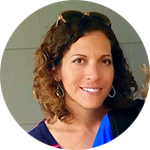Applying an Equity and Inclusion Lens to Adult Literacy and Education
While much of the conversation about the impact of COVID-19 on education has centered around PK-12 and higher education, the pandemic has also had a profound impact on the millions of people who are currently enrolled in Adult literacy and education programs across the country. Adult Education refers to the education provided to youth and adult learners aged 16 and older, including (but not limited to) literacy, workforce preparation, and English language programs. The administration of these programs varies by state, including the responsible agency (e.g. education, labor, etc.). OLC’s Equity and Inclusion Committee member, Dr. Monica Simonsen recently sat down with the OLC Innovate Equity and Inclusion Scholarship winner, Dr. Ellen Beattie, Chief of Adult Instructional Services at the Maryland Department of Labor, to explore equity and inclusion issues and initiatives in the field of adult literacy and education.
How does the field of adult education and literacy relate to equity and inclusion?
Adult education provides opportunities and a path forward for so many citizens, allowing them to gain necessary skills to be productive citizens, support their families, and pursue their own educational and professional goals. The field grew at the turn of the century when immigration, industrialization, and the first World War necessitated better-educated adults to improve the economy and compete globally. Illiteracy was seen as a social problem. The government garnered public support for adult education by promoting the value of gifting education to the “illiterates” to reduce public welfare assistance – rather than elevating all citizens. Words matter- we must begin to frame the field in a way that mirrors the reality. Even the word “literacy” reminds us of the deficit of “illiteracy,” and the field and our learners encompass so much more. Any educator will tell you that adult learners bring unique gifts and talents to their classroom experience.
Would you please share with us one or two examples of equity and inclusion challenges that exist in adult literacy?
Digital equity- both in terms of devices and access to broadband internet. Even though this was an issue before COVID, the topic takes new importance with the transition to remote instruction. Unfortunately, the federal and state guidelines focus on broadband access for rural communities and ignore the realities of access challenges in urban areas, which are disproportionately people of color. We see creative initiatives such as EveryoneOn and National Digital Inclusion Alliance and numerous other local public/private partnerships addressing the digital divide. A second challenge is that the field, the students, and their individual needs are extremely diverse. By their nature, adult leaders are unique so designing programs and curriculum that meets their broad needs can be a challenge.
What types of leadership approaches/initiatives do you see as central to creating an equitable and inclusive culture?
I am a strong proponent of positive leadership. Not only does research show that positive leadership is connected to organizational performance, but also to employee satisfaction. Positive leadership focuses on engaging an individual’s strengths, developing trust, bringing awareness to the meaning of work, and cultivating respect in interactions/feedback. We are fortunate in the field of adult literacy we can literally see lives changing- not just the individual learner but also for families and communities.
It strikes me that there are some parallels between the assets-based lens that you say should frame our work with adult learners and the style of leadership you are espousing- a focus on unique strengths and possibilities. What advice do you have for those wanting to address equity and inclusivity in their organizational culture?
No one person or leader can create an environment. It is important to develop connections with those doing the work, so they feel invested and valued. The best leadership advice I have ever received was that you earn your privilege to lead every day. That is something that I take to heart. You have to listen, to observe and reflect what is going on. You can’t just do that once or once a quarter- you have to do that constantly to build and maintain the trust that creates strong relationships. Everyday you must ensure that you are encompassing the core values that will move your team forward productively. Dr. Beattie reminds us that as educators, we have a responsibility to acknowledge some of structural barriers to high quality education for adult learners (e.g. affordable housing, food security, health care, etc.) and that the move towards emergency remote learning has exacerbated some of these inequalities. Success now depends on access to a device and internet access. The diverse group of students that participate in adult education programs bring a broad range of skills, experiences, and strengths to the classroom. Investments in widespread access to broadband internet and high-quality adult education programming for all learners can help us to expand opportunities and create a more inclusive workforce and communities.



